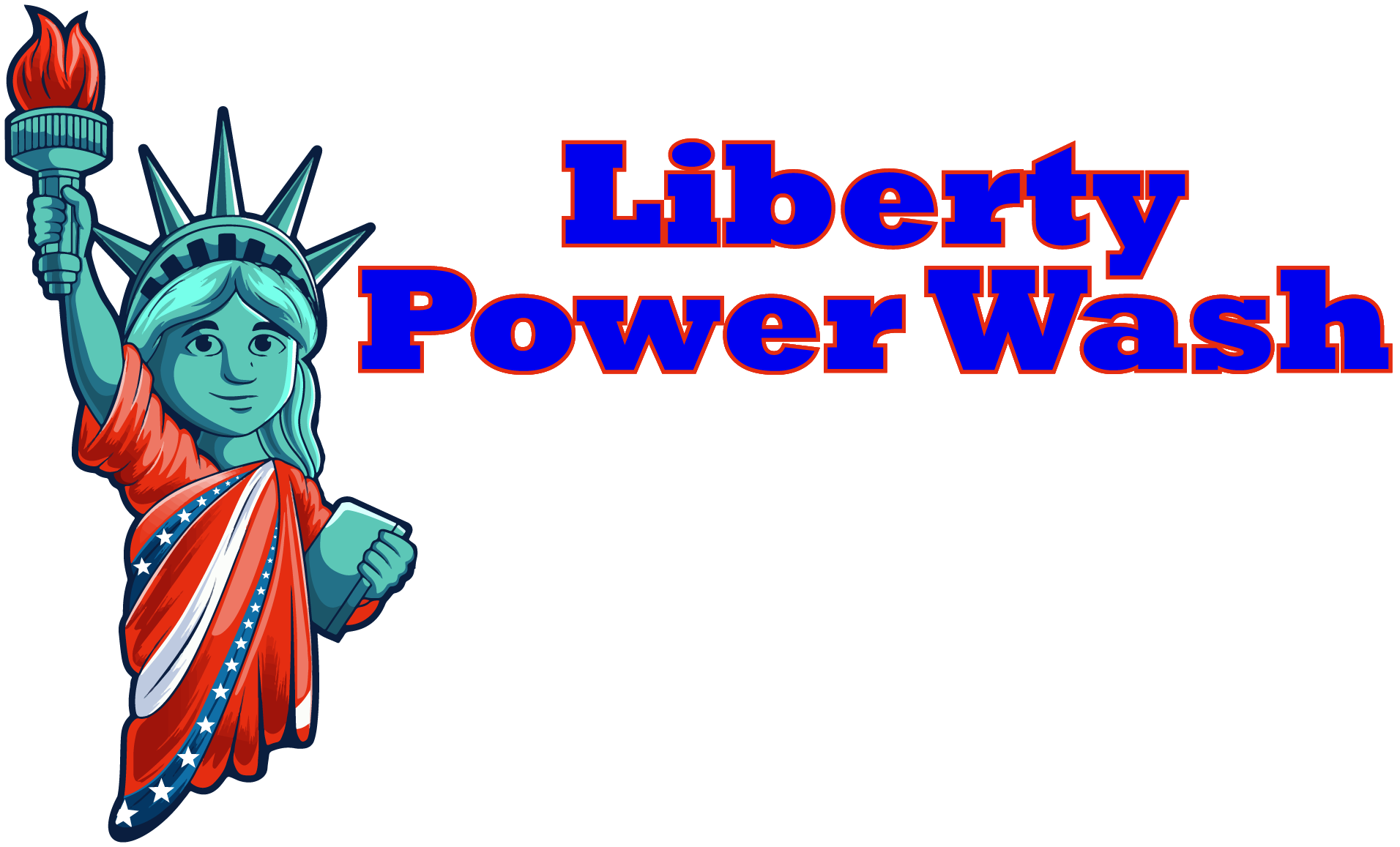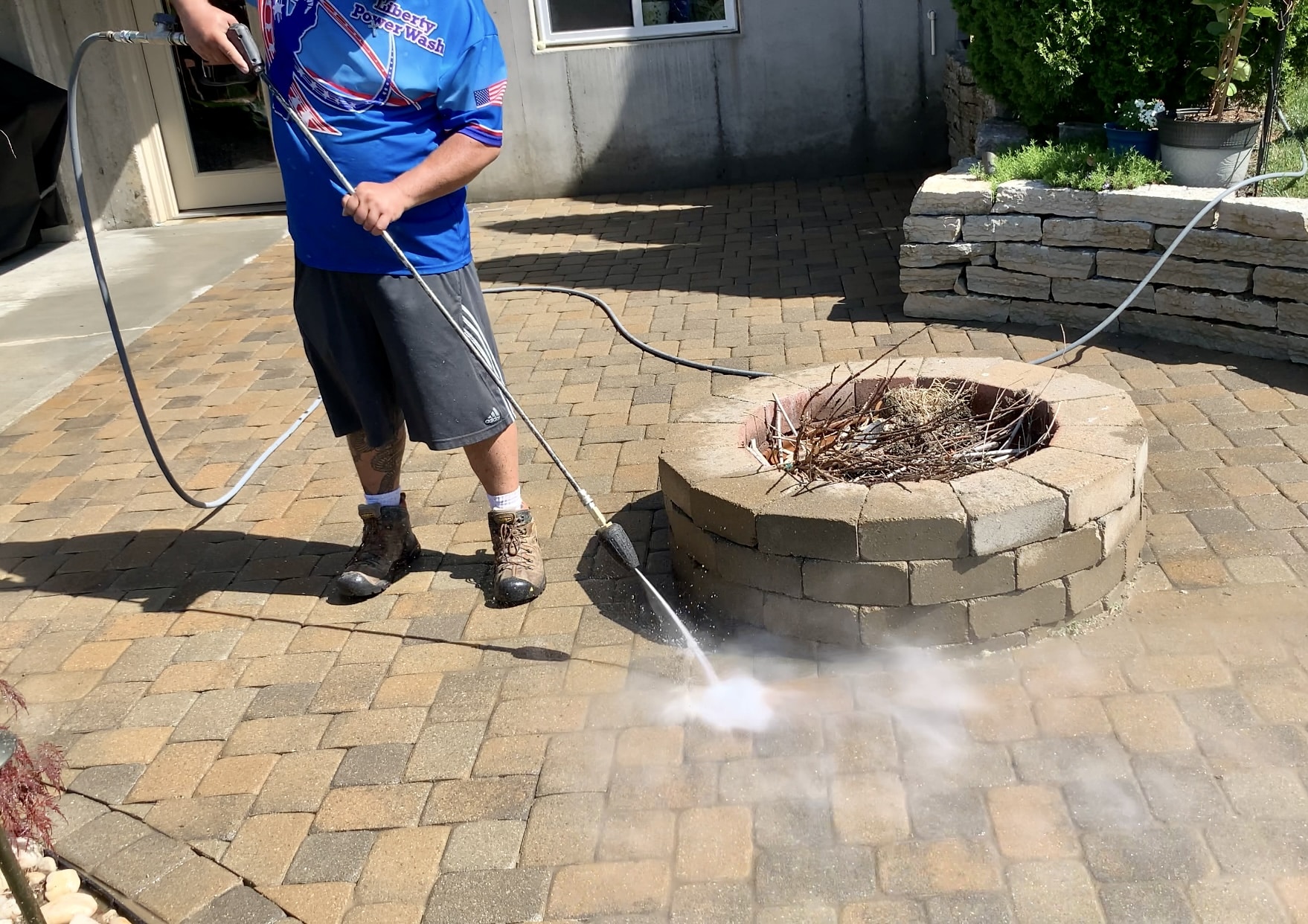Pressure washing is a powerful tool that leaves behind clean surfaces in a fraction of the time it takes to clean by hand. Like every powerful tool, however, there are parameters in which it should be used to make sure it is used properly. When using a pressure washer, it is essential to use the right nozzle and pressure settings, otherwise you can do more damage than good. Because of this, although it is possible to rent a pressure washer and manage the task yourself, you might first look to a professional team.
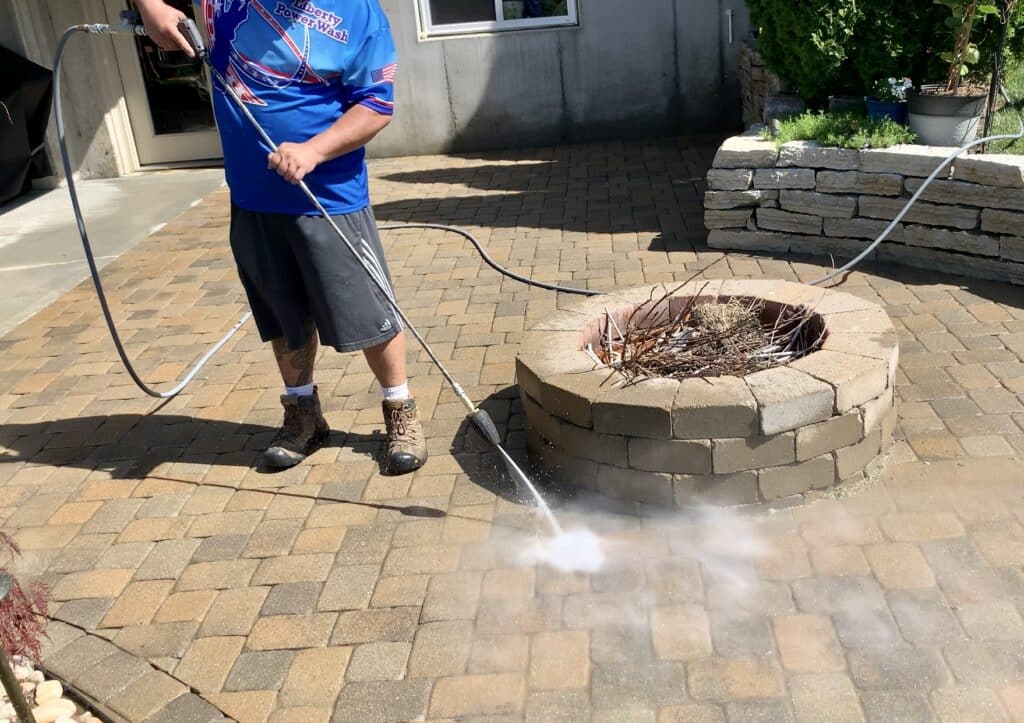
The Dos of Pressure Washing
Do Prep Before You Start
Whether you hire a pressure washer or rent one yourself, the cleaning area will need to be prepped. Cover any plants or other features you don’t want coated in chemicals. The unit will also need to be inspected, and the water pressure available should at least fill a five-gallon bucket in two minutes.
Do Ease Into It
It is important to start off on the right foot. Before taking a pressure washer to the surface in question, it is best to first soak the surfaces you are going to spray in detergent. This will help any grime or gunk come off more easily. Once you’ve done that, stand well away from the cleaning surface, turn on the washer, then walk the spray into contact with the surface. This can help prevent damaging the cleaning surface.
Do Adjust the Angle of Your Spray
The toughest stains will yield to a 90° spray angle. This is easy when the stain is at arm-level, but for difficult-to-reach problem spots, a pivoting nozzle can still produce perpendicular spray. A softer angle is appropriate for general cleaning.
The Don’ts of Pressure Washing
Don’t Underestimate Your Pressure Washer
A pressure washer is a powerful tool, and it is important to remember that from beginning to end of a project. NEVER point the unit at a person or pet and ALWAYS wear protective safety gear.
Don’t Assume One Nozzle Fits All
Each nozzle on the market is suited to different kinds of pressure washing. A wide fanning nozzle is better for large surfaces that don’t need targeted cleaning, while a narrow nozzle will concentrate already pressurized water for an even more powerful spray.
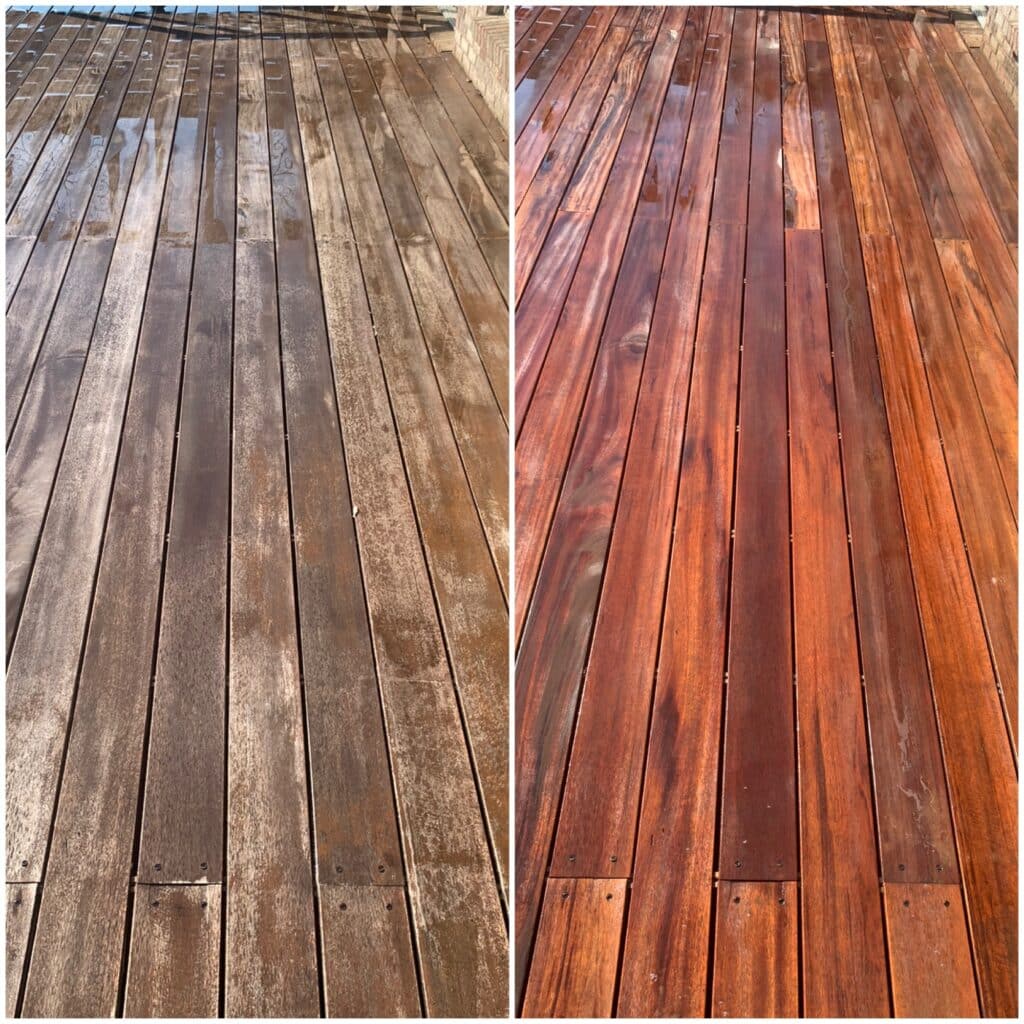
Don’t Pressure Wash Every Surface
Some surfaces are not cut out to be pressure washed, no matter how gentle you are. If you have any uncertainty about how fit something is to be pressure washed, you might hire a pressure washer company that specializes in the task.
What Material Can Be Pressure Washed?
Many materials can be pressure washed while many others are vulnerable to high pressure and a cocktail of chemicals. In general, natural wood, vinyl, select plastics, aluminum, cement, and concrete can be washed, but double check that your surface is amenable before you rent a pressure washer.
Will Pressure Washing Remove Paint From Brick?
Pressure washing is commonly used to remove paint from brick. If the brick has existing signs of erosion, do not attempt to pressure wash the brick on your own. Contract out the job to a professional if you have any uncertainties about which method to use or how to proceed.
Will Pressure Washing Damage Concrete?
While one of the most effective ways to clean concrete is pressure washing, if not performed properly, pressure washing can erode concrete. The porous nature of the material gives pressurized water a textured surface to bore into, which can damage concrete structures if not managed by a skilled hand. Pre-existing damage to concrete leaves the slabs vulnerable to further breakage.
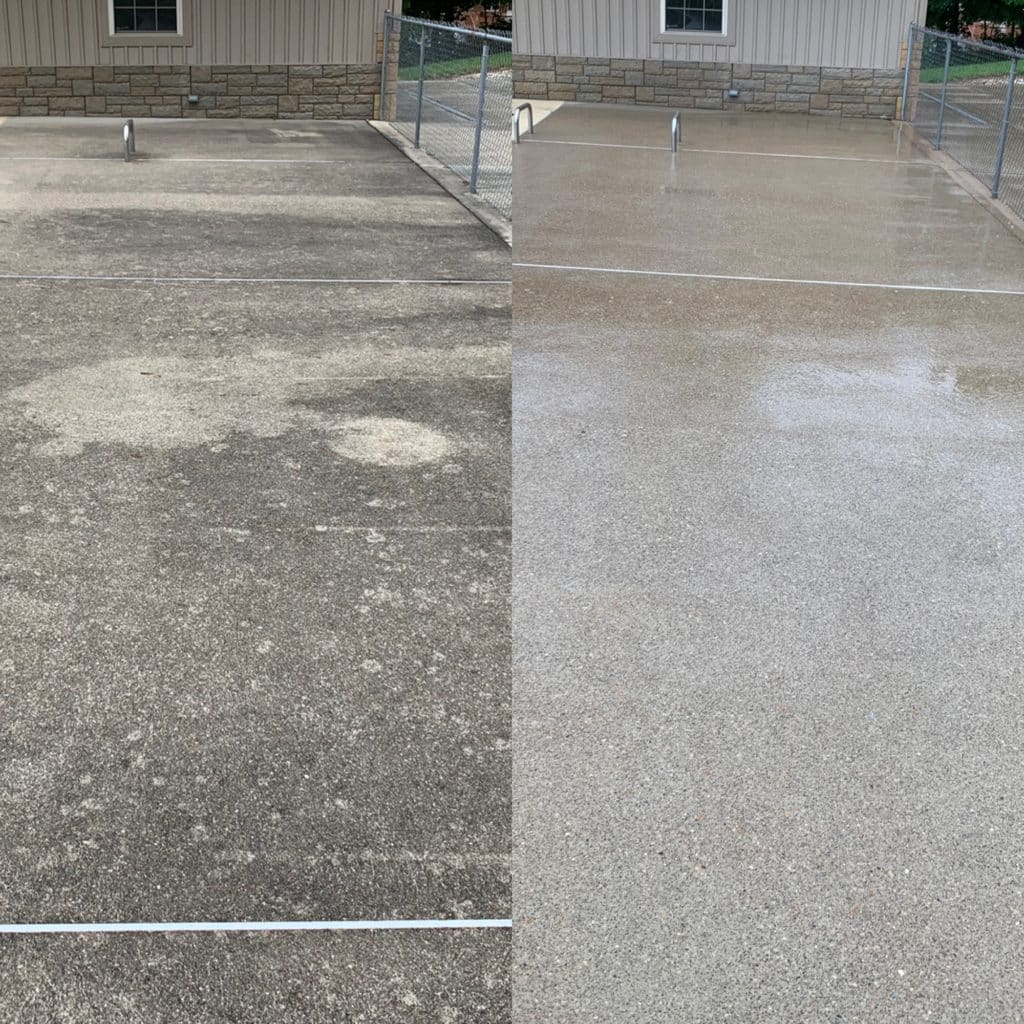
What Can Pressure Washing Remove?
Will Pressure Washing Remove Rust?
Especially in the humidity of Kentucky and Ohio, rust can be a big problem for homeowners. A pressure washer can remove rust from metal with the high pressure of at least 3000 PSI and a narrow-angle nozzle.
Will Pressure Washing Kill Plants?
In a word, yes. The chemicals in a pressure wash are harmful to plants. You can lessen this effect by watering your plants beforehand to dilute the chemicals and after to rinse them away, but if you really want to protect your plants during pressure washing, the easiest and most effective way is to cover them during the process. Do not keep them covered for too long, as doing so will deprive them of light and air essential to their survival.
Mold and Mildew
While people don’t usually want to kill or remove their plants when they power wash, the same cannot be said for other biological agents. Pressure washing can remove not only the biological elements that can eat paint and siding (mold, mildew, lichen), but also the stains they leave behind.
Will Pressure Washing Remove Oil Stains?
Oil stains are both unsightly and potentially dangerous. If you are going to pressure wash oil spills, attack the stains as soon as possible. The longer the stains remain, the more likely they are to set into the surfaces on which they sit.
If you’ve been Googling “pressure washing near me” in the Cincinnati or Northern Kentucky areas, Liberty Power Wash is here to help. Call us with questions or to hire a pressure washer company who puts your safety first.
